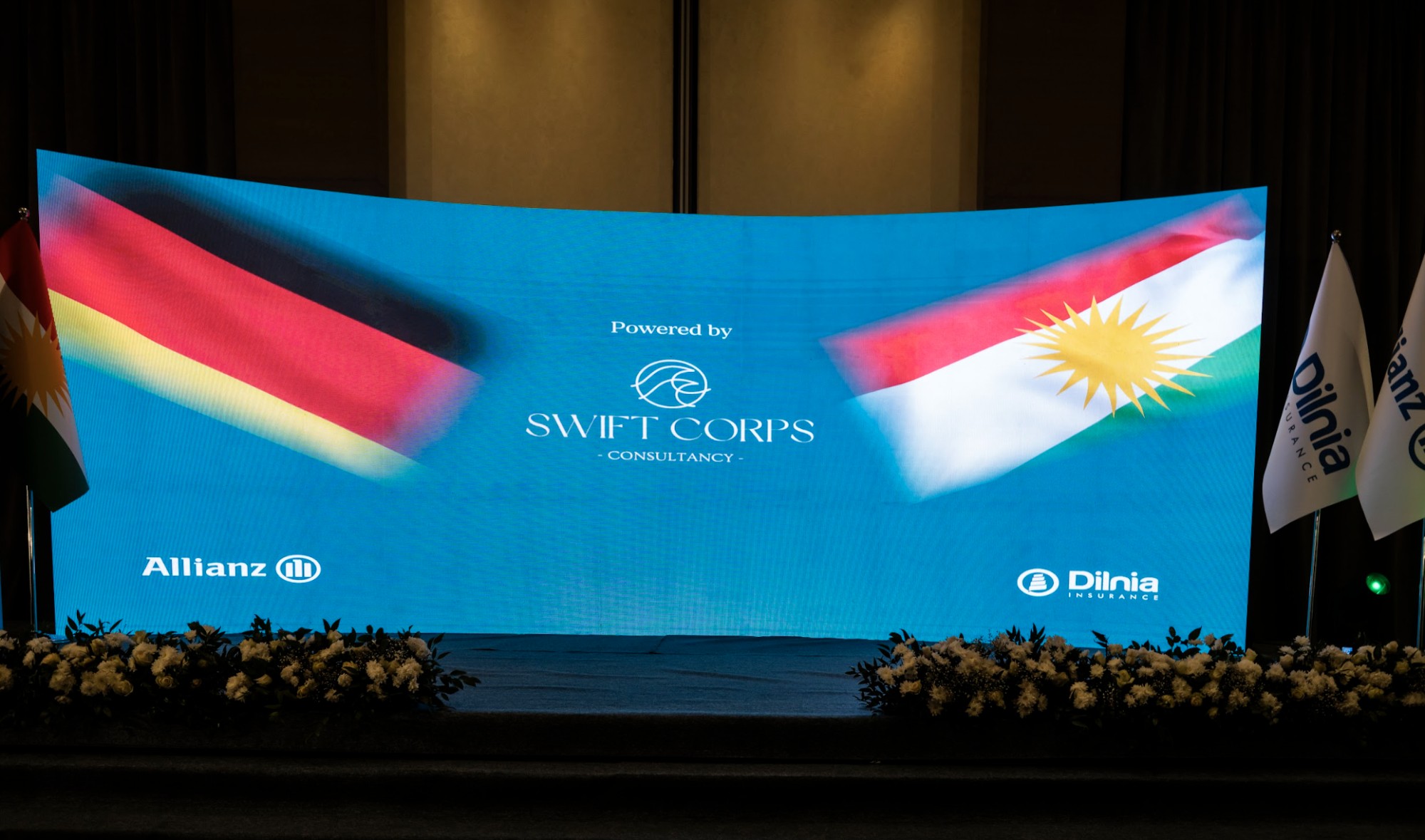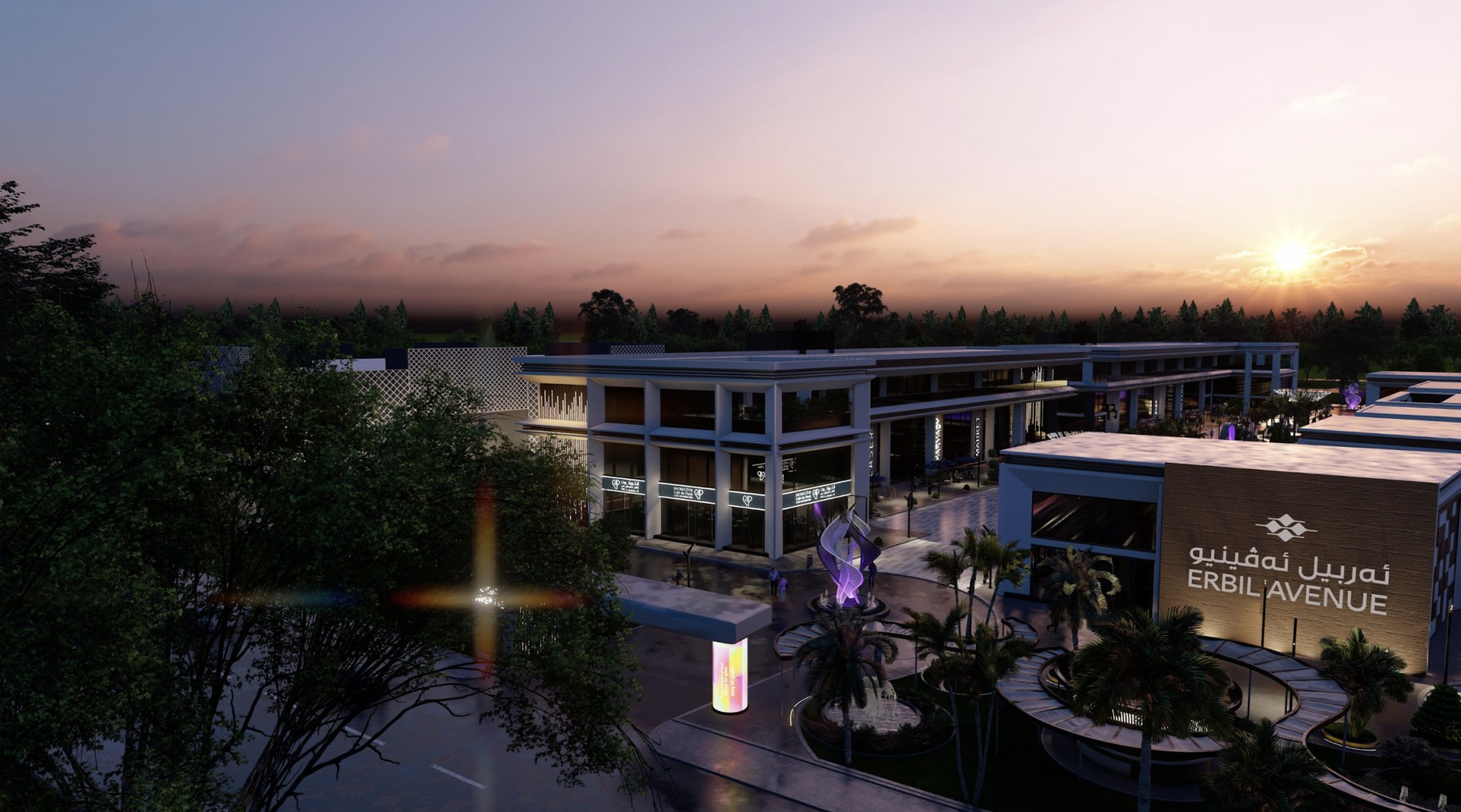In a development that reflects the growing industrial development of the Kurdistan Region, Dusara Company in Erbil has emerged as a pioneer in the field of manufacturing fire-fighting vehicles. This achievement, which was accomplished by the hands and minds of competent Kurdish engineers, is helping to secure a bright future for a promising local industry.
Established in 1977, Dusara pivoted to manufacturing fire engines in 2017 following decades of experience in the field of agricultural equipment. The company has since manufactured 20 fire engines, reflecting its ability to adapt to market requirements and develop local capabilities.
In an exclusive interview with Kurdistan Chronicle magazine, CEO Mariwan Faiq Kareem revealed the company’s ambitions to go beyond local markets. He seeks to expand production and increase the variety of the company’s production lines to export these vehicles outside the borders of the Kurdistan Region and Iraq, provided that the necessary support is obtained from the Kurdistan Regional Government (KRG) and the federal government of Iraq.
Dusara’s vehicles meet international standards and are inspired by Austrian and German models, with “a focus on safety and security elements,” according to Kareem. The importance of this local industry is highlighted by its ability, as Kareem says, to “compete with imported products in terms of quality and price, as their prices are 30% to 40% lower than their imported counterparts.”
Production of each vehicle takes three months, with their prices ranging between $170,000 and $260,000, depending on the specifications required. This price difference reflects the company’s flexibility in meeting different customers’ needs.
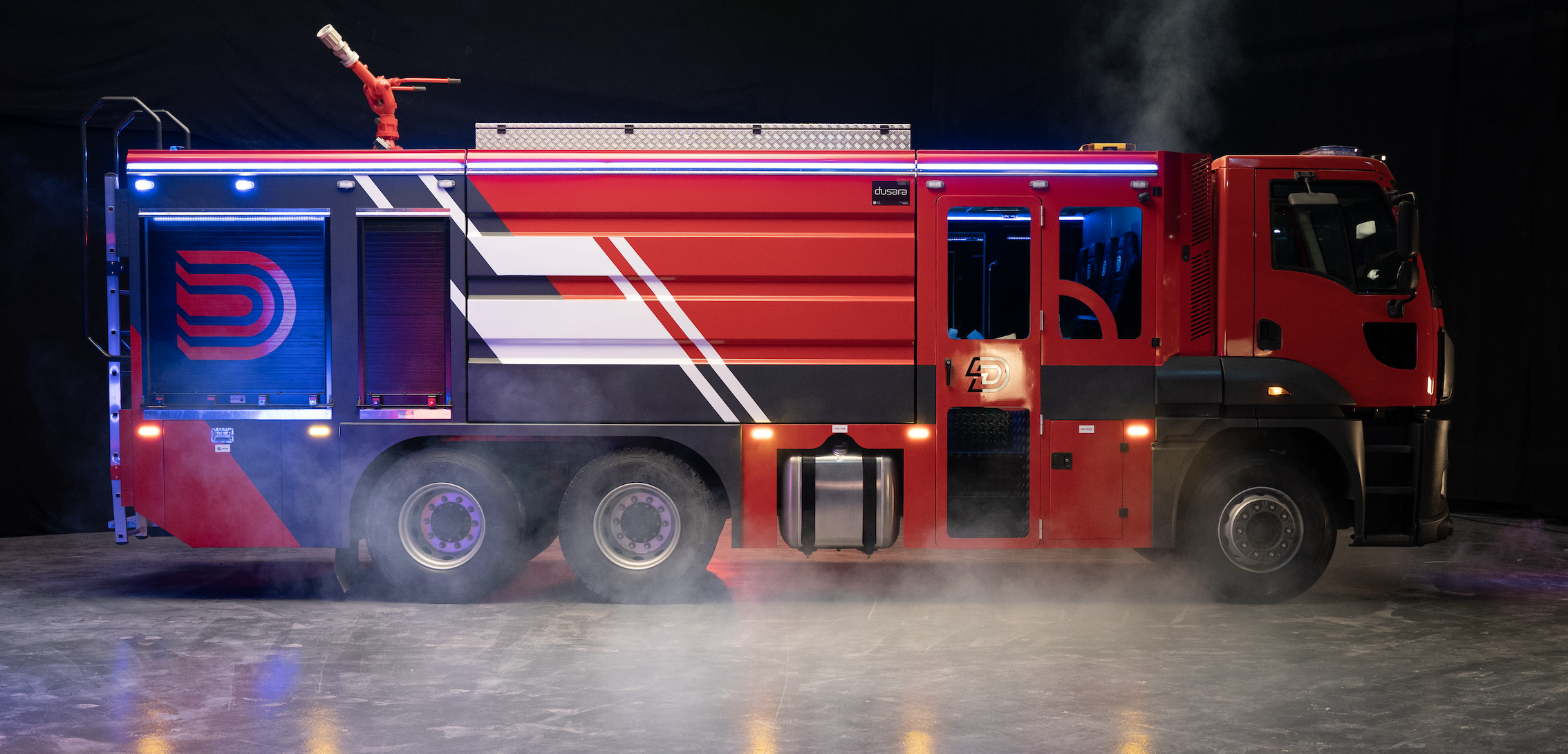
International ambitions
Dusara Company in Erbil continues its pioneering journey in the manufacture of firefighting vehicles, looking forward to broader horizons beyond the borders of the Kurdistan Region and Iraq. In this context, Kareem reveals ambitious plans for the future.
“We are working on studying and researching the addition of other production lines in the future, and this is within the local company’s plan,” he explains.
Karim emphasizes the quality of the company’s products, noting that “the durability of the locally manufactured wheel is comparable to the imported one.” He sees this as an opportunity for regional and federal governments to contract with the company, which saves time and money and keeps funds within the country.
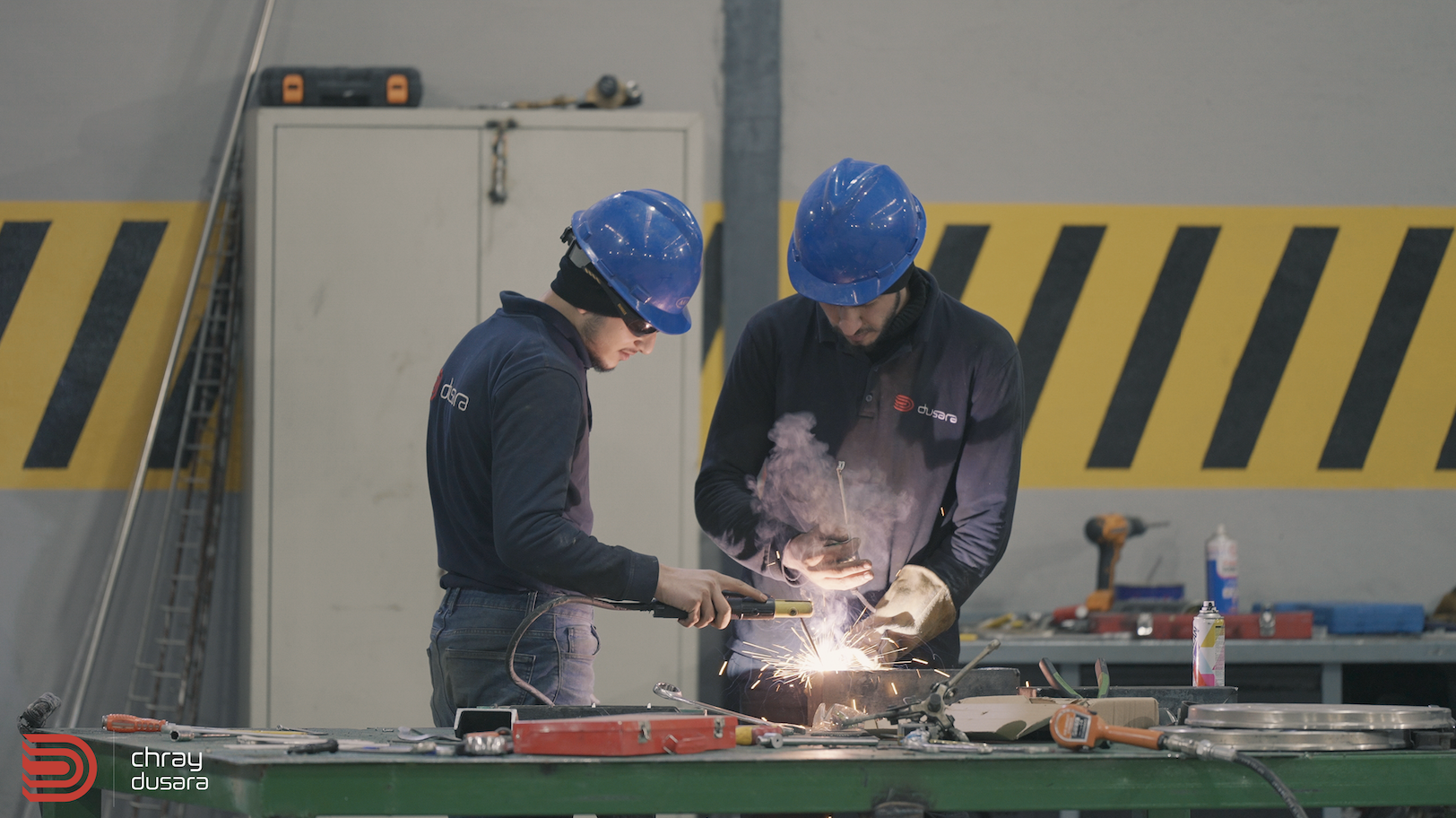
Dusara is distinguished through its commitment to post-sales service, as it follows up on the performance of its vehicles sold to non-governmental organizations. The company has not received any negative reports from customers, which reinforces its confidence in the quality of its products. Its experience, moreover, has extended to include the maintenance of other brands of firefighting vehicles used by government institutions, including those for which the original supplier companies could not provide solutions.
“The company’s engineers and experts have repaired several vehicles imported from neighboring countries and even European countries on behalf of governmental and non-governmental organizations after the supplying companies did not respond to the buyers’ calls and communications,” Kareem explains with pride. This underscores the disadvantages of importing vehicles, especially when a high-caliber local alternative exists.
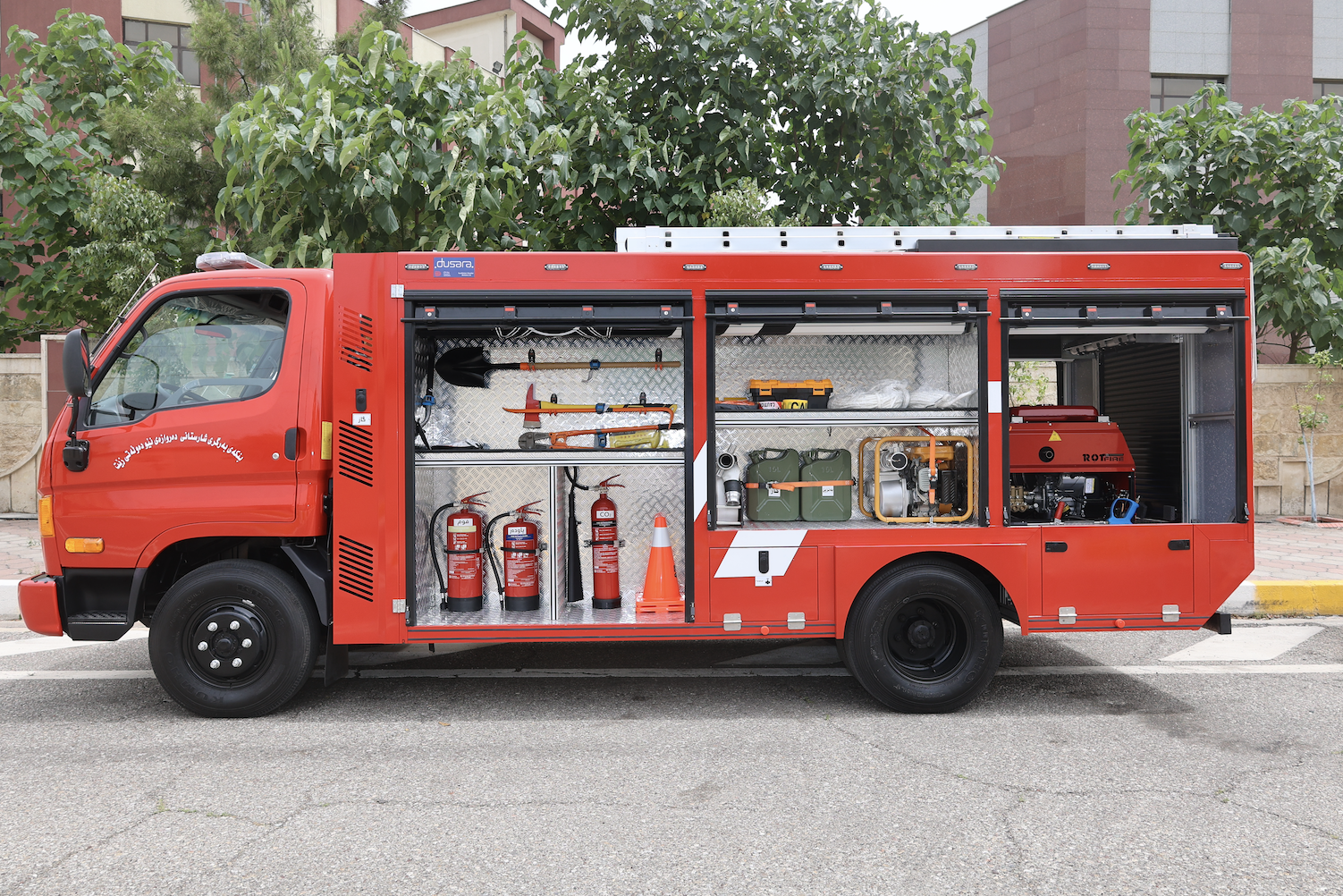
Challenges
Despite the successes achieved, the company has also faced challenges in expanding its business. It has received several delegations from federal government institutions to view the manufactured vehicles, but the resulting contracts are still postponed. The KRG has also spoken with the company about producing 40 vehicles, but the agreement has yet to be completed.
The company’s consulting engineer Zeyad Baban highlights the diversity of the company’s products. “We manufacture water tanks with a capacity from 6,000 liters to more than 16,000 liters, with foam and powder tanks and hose lengths of up to 80 meters.” He adds that the vehicles are equipped with “a cabin for equipment, firefighting equipment, ladders, water pumps, various electrical devices, a cockpit, and a special place for civil defense personnel.”
“After signing a contract, we order and import the vehicle frame according to the requests of the contracting party from countries such as Germany, the United States, the UK, and China,” Baban explains. “The vehicles manufactured by Dusara have specifications that are not found in their counterparts imported from abroad, most notably the camera system that the company has placed in its cars.”
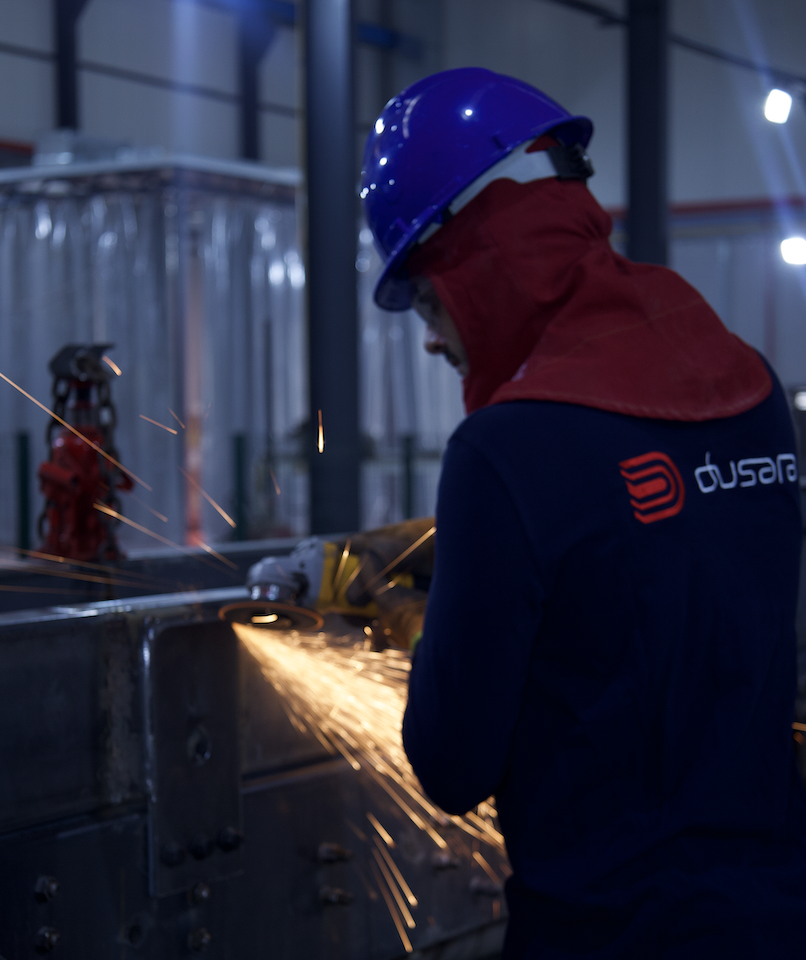
At the end of the interview, Kareem referred to the requests that the company has received to move its headquarters outside Iraq, which he has rejected. “We have received offers to move the company’s headquarters outside Iraq with attractive incentives, but we see that serving our city and the people of our country is the basis of our work.”
The success of Dusara represents an inspiring model for local industry in the Kurdistan Region and Iraq and opens up promising possibilities for developing national industries and strengthening the local economy.
Currently, the company is working on producing five vehicles dedicated to the Al-Abbas Shrine, which confirms the confidence of religious and governmental institutions in the quality of Dusara’s products.
The success of Dusara represents an inspiring model for local industries in the Kurdistan Region and Iraq. It opens the door to wide possibilities for local manufacturing in other sectors. This success also underlines the importance of investment in local firms in order to develop their capabilities to keep pace with global developments in various industrial fields.
Hemin Baban is a Kurdish journalist who has worked for a number of local and international media institutions.
